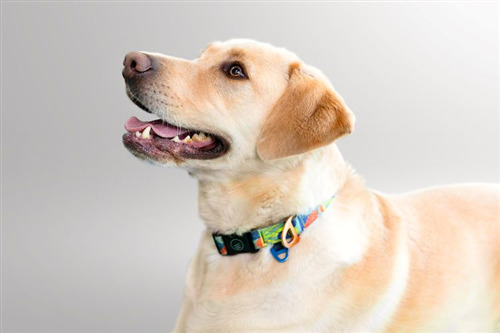If you notice a change in your dog’s behaviour, you’re likely to feel alarmed, especially if a calm family pet suddenly becomes aggressive or an outgoing one becomes timid. You might even wonder if it’s real, or if you’re imagining it.
As there are a number of reasons that can lead to behavioural changes, your concerns are more than valid. But before seeking help from a behaviourist, we’d recommend taking your dog to the vet for a health check if they show any new behaviour signs, as these are often due to an underlying medical illness.
Behavioural changes in dogs that can be linked to illnesses
When you’re unwell, you probably won’t be in the mood to be out and about, socialising or even moving at all. The same is true for our pets, and often one of the first signs of illness is a change in your dog’s usual behaviour. This may be a subtle change, such as sleeping more or not wanting to play as frequently, or a more noticeable sudden change, such as loss of toilet training or uncharacteristically showing aggression.
Common behaviour changes in dogs that you may notice include:
-
Aggression
This may be generalised, food-based, dog aggression, or when a painful area is touched -
Development of anxiety
Especially when left alone -
Change in appetite
This can include an increased appetite, development of scavenging/begging behaviour, or a decreased appetite -
Avoidance behaviours
This may be avoiding difficult-to-access areas e.g. stairs and furniture, or reduced interaction with owners and other pets e.g. avoiding playing or interacting -
Sleeping more/lethargy
-
Vocalisation
-
Restless/pacing
-
Self-injury
This often comes as excessive scratching/licking of an area
If your dog shows any of these behaviour changes, it’s important to seek veterinary attention, as your dog may be suffering from an underlying medical problem. Pain, itchiness, changes in blood pressure, changes to metabolism and alterations to brain and nerve function are seen in several disease conditions and can all lead to a range of behavioural signs.
For example:
- A slow metabolism due to hypothyroidism can result in increased sleeping.
- Itchiness from skin disease can result in restlessness, loss of interest in playing and self-injury.
- Pain from joint disease can result in aggressive or avoidance behaviours.
- Low blood pressure from heart disease can result in exercise intolerance and exercise avoidance.
Once diagnosed, your vet can prescribe medication to help treat or manage most of these conditions, improving the quality of life for your pet.
Aggressive behaviour is a common sign of pain, so these dogs always need a thorough examination to determine if an illness is the cause.
A number of behavioural signs may be seen in dogs experiencing pain, especially aggression1, including:
- Showing aggression when a specific area is touched
- Showing aggression towards other dogs
- Showing aggression when approached
- Sleeping more
- Reduced exercise tolerance
- Change in places they sleep or play – they may avoid jumping up onto sofas or beds
- Avoiding stairs
- Reluctant to play or interact
- Self-trauma
Common culprits include:
Arthritis
Joint inflammation, or as vets call it, arthritis, can be as painful for your pet as it is to us. Dogs with painful joints will commonly show behaviour changes, often even before any signs of lameness are shown. These behaviour changes can be subtle, and there will be days when your dog feels better and seems fine, but others when they seem less active and spend more time sleeping2. Ultimately, they can start limping or become aggressive when touched, which usually means the condition is already advanced.

However, if you seek veterinary treatment, arthritis can usually be successfully managed to allow an improved quality of life and comfort, which in turn results in an improvement in any behavioural signs. If your dog is older, it’s important to avoid thinking that these new signs or changes in behaviour are just part of “getting older” – arthritis can be a very painful disease for your dog to cope with, but remember that it can be managed with your and your vet’s support.
If you think your dog may be showing signs of arthritis, you can use our online checklist to help you gauge the problem before talking to your vets.
Dental disease
The discomfort caused by dental disease can be easily underestimated by us, because dogs with advanced dental issues will usually continue to eat normally.
However, and if you’ve ever had dental problems, you know this first-hand, dental disease can be very painful, so it can result in dogs not tolerating having their mouth or head handled as they try to avoid the pain. Frequently, owners will notice that these behaviour changes resolve following dental treatment.
Skin problems
Skin issues are very common, and if we had to guess, we’d say that this is something that you’ve probably had to deal with before. From parasitic infestations, such as fleas, to skin allergic dermatitis, where your dog might constantly be itching or biting at areas of their body, there’s a lot that can affect your dog’s skin and their behaviour as a consequence.
Every dog scratches, so if you’re not sure if your dog is doing it excessively, we would advise on the side of caution to avoid underestimating pain and itching from sore skin. Dogs can quickly make their condition worse as they scratch and irritate sore areas further, so as an attentive owner your role is vital.
Other than constantly scratching, behaviour changes, such as lethargy and reduced time spent playing or interacting with you, can also occur, especially as skin problems progress. To prevent your pet from suffering, we recommend that you visit your vet as soon as you notice any skin issues or behaviour changes, so treatment can be started quickly. You can use our online checklist https://www.zoetispets.com/ca-en/dog/skin-conditions/ to check your dog’s skin health and discuss the results with your vets.
Other common painful or uncomfortable conditions
- Urinary problems
- Pancreatitis
- Spinal disease
- Cancer
There are many painful illnesses that affect dogs that often result in behavioural changes being seen. To find out what could be affecting them, take your dog to see your vet so treatment can be started as early as possible.
Behaviour changes resulting from a loss of sensory function
As dogs get older, it is easy to think that behaviour changes are the result of ageing and are normal. However, it is important to discuss any concerns with your vet because there may be treatments or changes that can be made at home to keep your dog comfortable. A decline in hearing or eyesight can mean your dog is less confident or simply doesn’t notice the usual cues to react.
Behaviours you can recognise that are often associated with a loss of sensory function, include:
- A change in interaction with people – not recognising family members, not welcoming people at the door
- Clinginess, reluctancy to go far
- Development of separation anxiety when left alone
- Vocalisation
- Restlessness and pacing
- Change in appetite
- Sleeping more during the day
- Restlessness at night
- Loss of toilet training
Dogs of any age can be affected by any of these signs, so it is important that you take your pet to your vet if you think your dog is showing any signs of abnormal behaviour. This enables any medical conditions to be ruled out and puts you a step closer to knowing how to help your dog.
Loss of senses – hearing/sight
The gradual deterioration of the senses, especially sight and hearing, commonly occurs as dogs get older, as it oftens does to us. Unless the loss is sudden, you might not be aware of any changes until the condition is advanced and behavioural signs are shown, as most dogs adapt well to these changes. Speak to your vet for advice on how to help your dog adjust to the loss of sight or hearing, as there’s plenty you can do to make life easier for them.
If a loss of sight or hearing seems sudden, however, this is an emergency that requires urgent veterinary attention.
Generally, the more sudden the loss, the more serious the underlying condition, but often the more treatable it is. We know that it can be extremely stressful to witness your dog be so disoriented, but try to keep calm, as your vet will be able to help.
Canine dementia - cognitive dysfunction syndrome
This condition most commonly affects dogs as they age and can cause dogs to become confused and unsettled, which can be distressing for you as you may not know what to do3. To diagnose this condition, other illnesses need to be ruled out first, but once diagnosed, there are various dietary changes, mental stimulation exercises and medication that can be trialled to help your pet.
When to see the vet to check your dog’s change in behaviour
Sometimes, of course, a behavioural change is a behavioural problem – and in that case, your vet can refer you to a Veterinary ACVB (American College of Veterinary Behaviorists for Canada for further behaviour treatment. However, it is important to rule out any underlying illnesses. Physical disease conditions commonly cause behaviour changes to be seen, showing how important it is that your dog is examined by a vet so these conditions can be diagnosed. This enables treatment to be started quickly and you and your dog to get back to doing what you love!
1 Barcelos, A-M; Mills, D S; Zulch, H. (2015) Clinical indicators of occult musculoskeletal pain in aggressive dogs, The Veterinary Record; London, Vol. 176:18
2 Belshaw, Z., Dean, R., Asher, L. (2020) Could it be osteoarthritis? How dog owners and veterinary surgeons describe identifying canine osteoarthritis in a general practice setting, Preventive Veterinary Medicine, Volume 185
3 Landsberg, G.M., Nichol, J., Araujo, J.A. (2012) Cognitive Dysfunction Syndrome: A Disease of Canine and Feline Brain Aging, Veterinary Clinics of North America: Small Animal Practice, Vol 42:4, pp. 749-768

 21 minutes
21 minutes


